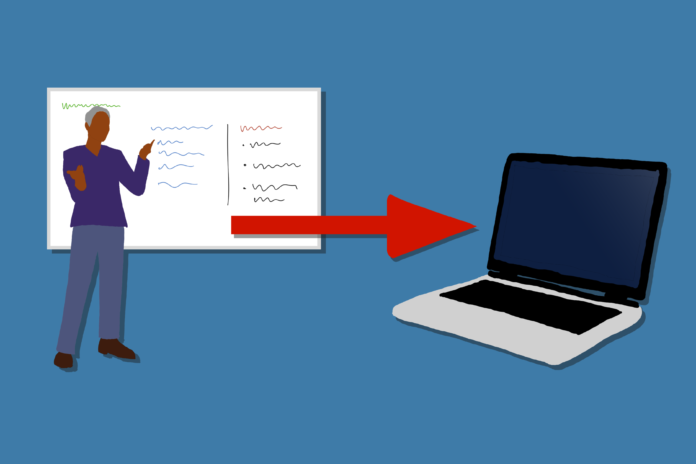Funds designated for optimization of adaptive learning programs
A new $1 million innovation grant from the State of California will help “develop, test and widely distribute a new adaptive learning platform” that accompanies the existing library of LibreTexts, a non-profit organization founded by UC Davis Chemistry Professor Dr. Delmar Larsen, according to an article on the UC Davis website. The grant will fund collaborative work between faculty from UC Davis, California State University, San Bernardo and Mendocino College.
“The three-year innovation grant, titled, “Rebalancing the Equity Gap in Chemistry Education with Culturally Sensitive Adaptive Learning,” will use online, personalized learning technologies to decrease the achievement gap in for approximately 8,000 students per year through a coordinated effort which was one of only five grants selected by the State of California,” according to a press release from CSU San Bernardino.
The project aims to “directly improve outcomes for underrepresented student populations pursuing STEM education by using culturally-responsive, technology-enabled learning to address factors known to disproportionately impact historically marginalized groups in STEM,” according to CSUSB’s press release.
The project was one of five to receive an innovation grant, presented by the California Education Learning Lab — established in 2018 by Assembly Bill 1809, the California Education Learning Lab strives to “increase learning outcomes and close equity and achievement gaps across California’s public higher education segments, particularly in science, technology, engineering, and math (STEM) disciplines,” according to its website.
“Textbooks have gotten quite expensive, and that is quite detrimental,” Larsen explained.
“The goal of the project is to be able to make an alternative that is fairly available for students to turn to and faculty to turn to, and to address the rising cost of textbooks.”
LibreTexts
LibreTexts was born out of a precursor project called ChemWiki, which Larsen launched between 2007 and 2008 after using an “atrocious” book to teach CHE 107B: Physical Chemistry for Life Sciences.
“It was a first edition, full of errors and made my life unbelievably painful, and it was $200,” Larsen said. “I felt that it was a rip-off. [CHE 107B] was a large class of 300 students. We are talking about $60,000 if everyone in that class purchased a book. I felt that there was a way to work around that.”
Following its creation, ChemWiki grew to address academia beyond physical chemistry.
“[ChemWiki] started to expand into multiple STEM Wikis [like BioWiki, GeoWiki, StatWiki, MathWiki],” Larsen said. “There were about six of them. About three or four years ago, we threw it all into one moniker called ‘LibreTexts.’ We expanded it to now 14 libraries with the scope of basically all of academia.”
LibreTexts has an extensive array of material available, including 154 courses and a collection of 398 textbooks, textmaps and LibreTexts. Serving 223 million students, LibreTexts has saved students a total of $31 million, according to the LibreTexts website. Additionally, according to a LibreTexts blog post, LibreTexts was the most popular resource for students in California accessing chemistry content, receiving 100 million page views last calendar year.
The definition and nature of a conventional textbook has radically evolved over the last decade, Larsen said.
In October of 2018, LibreTexts announced that it had received a $5 million Open Textbooks Pilot Program award from the U.S. Department of Education. LibreTexts is currently in pursuit of other funds in order to expand into spaces like K-12 education as well.
“We’ve always had the goal to build an online homework system,” Larsen said. “That is part of this grant from the U.S. Department of Education. We have that going. That system is called Query, and we even have a library of questions already put in place in our Query library.”
Looking to the future, Larsen hopes to utilize existing infrastructure to enhance the type of material available to students. As opposed to having a system that operates by presenting a question and then an answer, Larsen aspires to generate a “virtual tutor” through integrating “decision tree infrastructure” into technology that LibreTexts currently has in place.
“Collectively, it is called adaptive learning, and it is a way to personalize the interactions between the homework system and the student in order to help address the deficiencies in a student’s knowledge,” Larsen said.
Through the most recent grant obtained by LibreTexts, Larsen hopes to “help every student.” More specifically, the California Education Learning Lab is encouraging LibreTexts to use the money to “help handle the achievement gap between advantaged and disadvantaged students,” Larsen said.
“The questions, the videos, […] even coupling down to the textbook, will start to better reflect [a student’s] identity,” Larsen said. “Seeing old white guys in your books is constantly reiterating that it’s not a position for [disadvantaged students]. That needs to be changed.”
Written by: Dina Gallacher, Aarya Gupta — campus@theaggie.org



